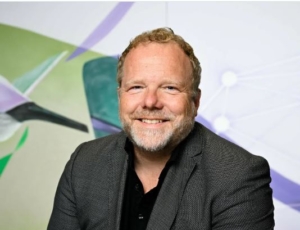Why has the treatment of patients with mental health disorders not improved despite so much research. This issue was explored by a group of researchers and clinicians in the fields of clinical psychology, psychiatry, epidemiology, neuroscience and methodology during the year.
Although there are treatments that are seen as being effective, on the whole, the positive effect of treatments has not increased over the last decades. About half of patients do not respond sufficiently to treatment and those who do respond tend to relapse. There is no single clear answer but we believe that an important cause may lie in the way academic research is organized. As long as this is not changed, progress in terms of more effective treatments is not likely. What do we mean by this?
One of the most common mental health disorders in the Netherlands is depression. About 800,000 people suffer from this illness. With its, ‘Multi-year Depression-prevention program’ the Ministry of Health, Welfare and Sport hopes to reduce depression by 30% over a period of 5 years. To achieve this noble goal the Minister of Health, Welfare and Sport will not only need to prevent the development of depression but also provide better treatments.
Why is this not achievable? Psychic disorders are the consequence of a multitude of interacting factors including biological (e.g. genetic variation), psychological (e.g. negative thinking) and environmental factors (e.g. life events). No two patients have exactly the same set of factors, moreover, these factors can change during life-span. Academic research is normally organized into disciplines or ‘pillars’. This means that often a single factor (e.g. biological factor) or a specific disorder (such as depression or anxiety) is studied whereas knowledge from other fields and cooperation with researchers from other ‘pillars’ is neglected. The results from such research are disjointed and, therefore, difficult to integrate and translate to improving treatments. There are good initiatives in which adjacent disciplines work in cooperation (such as the ‘Amsterdam Public Health Institute’ of the VU University Medical Center and Amsterdam Medical Centre). However, in most cases disciplines work in their own separate ways to answer questions on how to improve treatments. The outcome is that the ‘whole’ picture remains elusive. In our opinion what is missing is a national and integrated approach to academic research where disciplines continually interact and influence each other. Now they only meet sporadically.
This must change. This is why we invite them to join us in thinking how we could set up a structural ‘interdisciplinary approach’. This will entail not just investment but also the courage to look beyond our own or adjacent disciplines. We can no longer place our own disciplines at the centre.
Apart from clinical psychology, psychiatry, epidemiology and neuroscience we should also consider computer science, philosophy, economics, technology, methodology, anthropology, sociology. This approach could produce new paths to improve treatments: for example by taking a societal approach (such as inequality) instead of a purely medical approach. If we do not take this step, the likelihood of improving the prevention and treatment of mental health disorders is small.
In other academic fields there are already striking examples of interdisciplinary ventures, such as at the European laboratory for particle physics (CERN: European Organization for Nuclear Research). At CERN, more than 6500 researchers from different disciplines work together to gain an understanding of the constituents of matter. Interestingly, this was where the World Wide Web originated (https://home.cern/topics/birth-web).
The establishment of a National Institute for Mental Health Disorders could be the first step towards an effective approach to dealing with common mental heatlh problems such as depression and anxiety disorders. It should act as the engine driving the collection and integration of interdisciplinary knowledge at a structural national level. The fact that depression and anxiety disorders are so common in the Netherlands, the burden of disease is significant and the costs for treatment are estimated at around 2217 million, clearly justified the establishment of an institute such as this is. This is a step beyond the temporary subsidies for ‘distance’ cooperation or with adjacent disciplines.
We hope that the Dutch Minister of Health, Welfare and Sport will join forces alongside researchers and policy makers. Here lies a unique opportunity for a content-driven adjustment to the way academic research into mental health disorders is organized. This would give the government’s target to reduce the burden of the most common mental health disorders a considerably higher chance of success.
We are eager to help.
Claudi Bockting (AMC/RUG), Philip Spinhoven (Universiteit Leiden), Angélique Cramer (UvT), Johan Ormel (UMCG), Eveline Crone (Universiteit Leiden), Marten Scheffer (Wageningen Universiteit), Pim Cuijpers (VU), Aart Jan Beekman (GGZinGeest), Richard van Dyck (VUmc/GGZinGeest), Christiaan Vinkers (UMC), Denny Borsboom (UvA), Theo Mulder (NIAS).
This op-ed was first published in Dutch in NRC Handelsblad (December 2017). It was written as part of the interdisciplinary NIAS theme group on effective mental health interventions.




